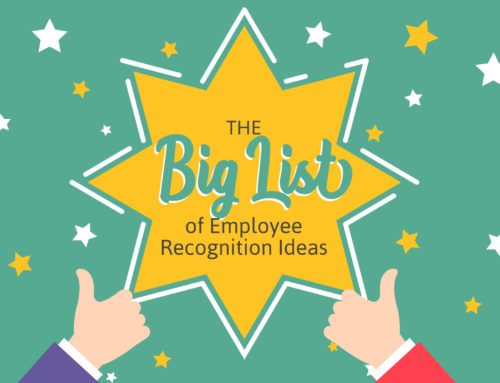 Trust.
Trust.
That’s the word many U.S. companies hear when they’re trying to get on Fortune’s annual list of 100 Best Companies to Work For. Many consult with the Great Place to Work Institute, which oversees the competition, and they learn three important lessons:
Employees at the 100 best companies feel a strong sense of trust towards
- Their managers
- Their jobs
- Other employees
The biggest point to remember? When you have trust in the workplace, it becomes the foundation for every other positive aspect of your environment. With that in mind, here are six reasons why this is so important today.
1. More trust = fewer distractions
Are you trying get everyone focused on business objectives instead of internal politics or conflicts? When employees honestly believe that the company is on the right path, this becomes a whole lot easier.
2. Trust breeds innovation
You can’t expect employees to be creative problem solvers when they don’t feel safe and secure in the three relationships mentioned above. Make them feel safe and they will deliver the innovation that could propel your company forward.
3. Trust transforms teams into families
When employees feel good about belonging to something bigger than just a job, they will view each other as more than just coworkers. The results: more cooperation and bigger accomplishments.
4. Trust opens the door for healthy competition
Want to improve sales quotas or customer service scores? Introduce some competition. But first, make sure you’ve built an environment where employees respect each other and really believe in the company’s goals. Otherwise, you may be introducing conflict.
5. Leaders who trust employees share information
Guess what? Employees who are included in conversations about the company’s strategy, successes, and goals are generally happier and more productive. So make sure your managers trust their teams enough to do this.
6. Trust affects performance
When the Human Resources Management Association studied employees who felt a collective sense of trust, they found that their “willingness to be accountable for the performance of their organization led directly to better sales and customer service.”
This doesn’t mean building a great place to work starts and ends with trust. There are many more lessons to be included. But it’s safe to say that if you don’t start with trust, you may not get very far.
Ready to communicate to employees and build a sense of trust? RSW can help.






Leave A Comment